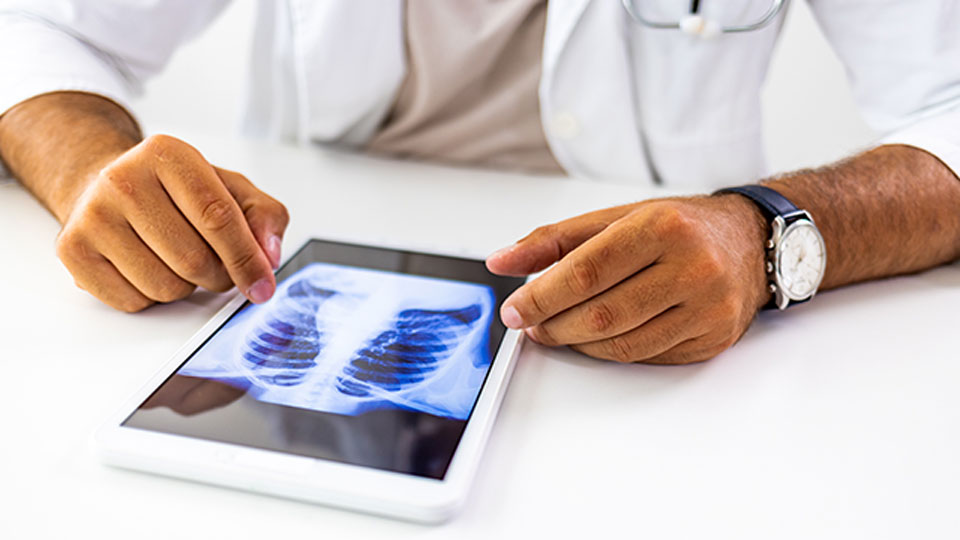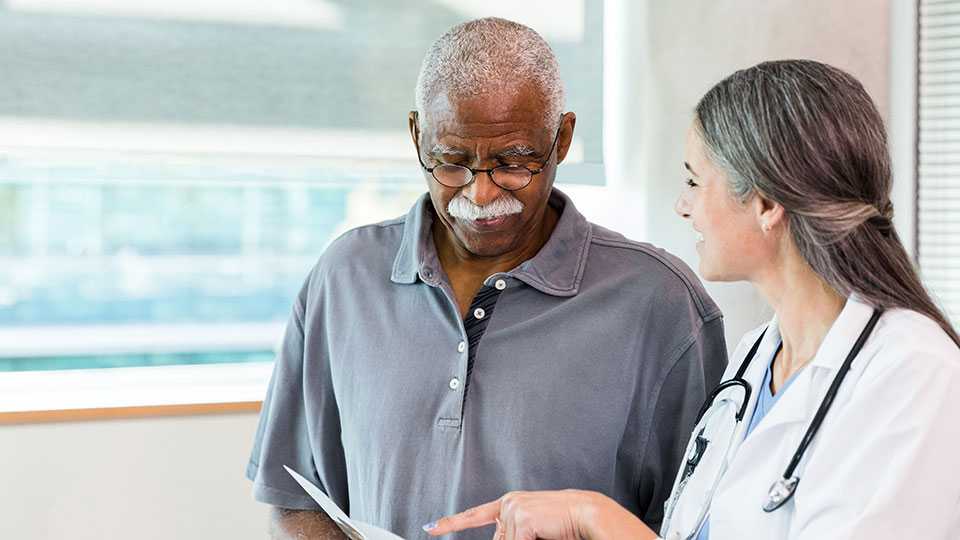Helping you understand a lung cancer diagnosis
We are here for you throughout your lung cancer journey.
Facing a lung cancer diagnosis can be a challenging and overwhelming journey that can have big impacts on your life, both physically and emotionally. We are here for you every step of the way during the process and will make sure to get more information to you as quickly as we can.
Our promise to you is you will get the clearest diagnosis possible.
Start Your Journey With Us
If you don’t have a doctor yet, we can help you find one.
Facing your diagnosis, together.
It may have come as a surprise to have a screening showing the possibility of lung cancer, and to get this diagnosis. After all, lung cancer can go undetected with little to no symptoms for a long time. We’re here to provide the best care we can, so we can help you achieve the best possible outcome.
You may start experiencing physical symptoms such as persistent cough, shortness of breath, and fatigue, which can impact your daily activities and overall quality of life. Treatment side effects may also bring additional challenges. Emotionally, a diagnosis can cause anxiety, fear and uncertainty about the future and can impact your relationships, work, and finances.
We are here to support you every step of the way. Our dedicated team of healthcare professionals is committed to providing comprehensive, personalized treatment options, and compassionate support. Together, we will navigate this journey, empowering you with the knowledge, resources, and support you need to face lung cancer with strength and resilience.

Understanding the stage of your lung cancer can help you decide next steps.
Classifying your lung cancer by stage helps us understand how many cancer cells there are in your body. It also helps us determine the best treatment options for you.
The tests and procedures used to stage your lung cancer include physical examinations, imaging scans, biopsies, and sometimes surgical procedures.
The stages of lung cancer are indicated using Roman numerals that span from 0 to IV.
- Stage 0 is used when there are abnormal cells in the innermost lining of the lungs, but they have not spread to other areas of the lung.
Stages I, II and III are used when the cancer has started to spread to other parts of the lungs, chest, nearby lymph nodes and organs.
Stage IV is used when cancer has spread to distant organs or lymph nodes.
We will discuss your treatment options together.
The treatments we recommend will depend on the specific kind of lung cancer you have and if it has spread, your physical fitness level, and other factors. For example, surgical procedures may require a certain level of physical fitness to ensure successful recovery. Your doctors will provide you with an in-depth treatment plan including all the available options, considering your specific circumstances. They will guide you through the benefits, risks, and potential side effects of each one so you can make the most informed decision possible and make sure it feels right for you. By working closely with your doctors, you can make an informed decision about your treatment and make sure it is the best choice for you.
Treatment options include:
We’re Here to Help You Ask the Right Questions
We're here to support you through the broader impact of a lung cancer diagnosis.

We’re here to help you make decisions.
Our goal is to make sure that you have all the information that you need to make the treatment decision that is right for you.
Even after learning about the benefits of treating lung cancer early, some people may choose to wait before starting treatment, and others, for a number of reasons, may choose to not be treated at all.
We understand that these are personal choices and decisions, and we respect them. Please know that we will be here for you regardless.
Your care program
Our care goes beyond treatment, including financial support.
While the financial side of things can seem daunting, we promise we will make it easier to understand invoices, file insurance claims, and help you find the financial support you need throughout your care so that you don’t have to figure it out on your own.
Whenever you need help, please know that we are here.
Make an Appointment Today
No matter where you are in your journey, there are many ways we can help and support you.

